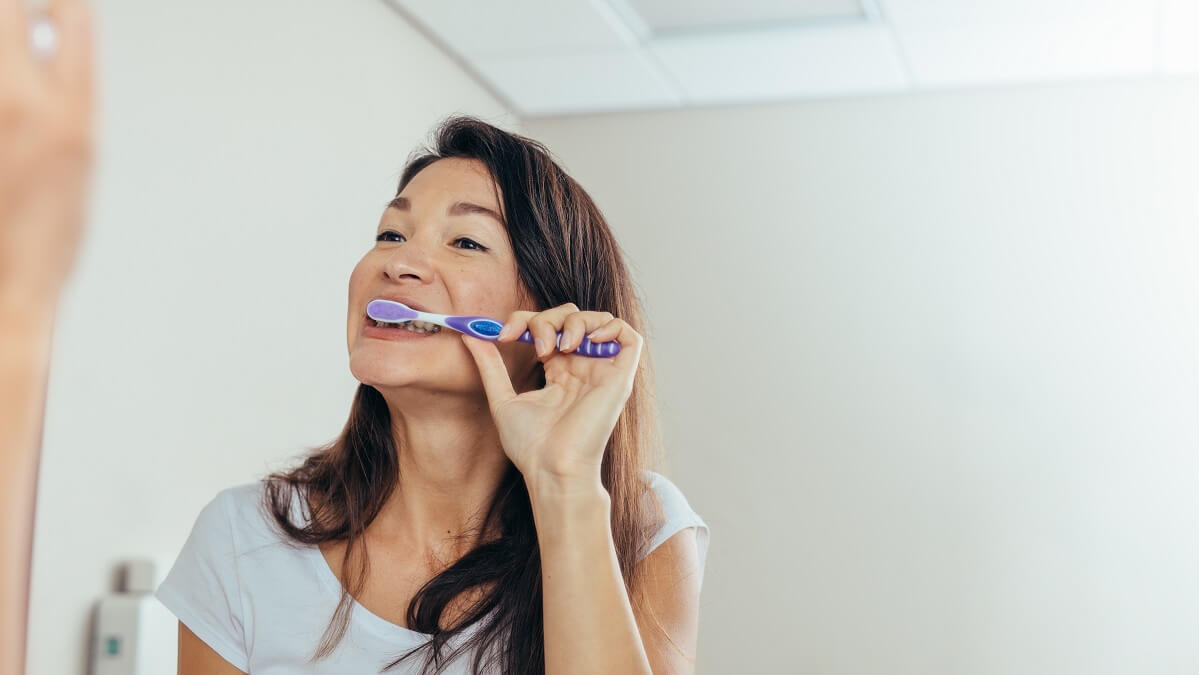Regular teeth brushing was advice we all grew up with, and good advice it was, too. Brushing your teeth does many good things, in ways you perhaps haven’t even thought of. For example, if you find yourself without toothpaste, brushing alone still helps keep your teeth in great shape.
In fact, questions are now being asked of some of the newer generations of toothpaste. Could they be actually doing more harm than good?
A brief history of brushing teeth
The title above could be referring directly to me. As a kid I always viewed the whole teeth-brushing regime as a waste of a good two minutes. One of my brothers was the polar opposite. He would slavishly follow the instructions from Mum and Dad and our dentist.
I, on the other hand, would briefly introduce tooth, brush and paste to each other, then rinse and move on. I was providing lip service, rather than tooth service, to my sizeable incisors and molars.
How did that work out for me and my brother? The last time I asked him, admittedly a couple of decades ago, he was filling free well into his 40s. Four years his junior, I had a mouth full of silver and cement.
Brushing morning and night was a relatively new practice in the late 1960s. It had been brought to us courtesy of war. Specifically, World War II, during which American soldiers were required to brush teeth regularly.
The practice quickly spread to military around the world and came home with the soldiers.
Hygiene and a perfect smile
One of the other post-war western world developments was commercial development of products and marketing of those products. Marketing teams were asking, ‘How can we provide a point of difference?’ Thus, products that are essentially identical are spruiked as being ‘fast acting’ or having an ‘improved formula’.
Much of it was spin, of course, and the simple act of brushing, flossing or dislodging does much good without those products. Brushing introduces oxygen to the bacteria in our mouths, which goes a long way to killing off ‘bad’ oral bacteria.
‘Bad’ bacteria implies the existence of ‘good’ bacteria, and that implication is correct. In recent decades, we’ve learnt much, scientifically speaking, about our gut microbiome. Science is now catching up with our oral equivalent, and we have learnt that there’s good and bad bacteria in our mouths, just as there is in our guts.
And it’s here that we may need to start being more careful when brushing our teeth. One of society’s other ‘great’ aims is good looks. That, of course, includes having a ‘perfect’ smile, ‘perfect’ in this case being a euphemism for ‘pure white’.
To ‘assist’ with society’s pursuit of ever-whiter teeth, toothpaste manufacturers have introduced teeth-whitening formulae. Many of these work, but super pearly whites may come at a cost.
Choose your toothpaste carefully
The common active ingredient that lightens your tooth colour is the same you may have used to lighten your hair colour – hydrogen peroxide. While not inherently dangerous, hydrogen peroxide can disrupt your oral microbiome balance, which can lead to other health issues.
Hydrogen peroxide is not the only culprit here. Standard antimicrobial toothpaste and mouthwash ingredients include alcohol, chlorhexidine and triclosan. All of these can affect our oral microbiome, and current evidence suggests we should not be using them daily.
Oral hygiene is very important. It is seen by many health experts as a gateway to overall health. (Which makes many wonder why most dental care is not covered by Medicare, but that’s another story.)
By all means keep brushing and flossing and using toothpaste. Just be a little careful with your choice of toothpaste. If it has ‘bonus’ ingredients that help whiten your teeth, be careful to ‘use only as directed’. And perhaps have a chat to your dentist about whether such products are right for you.
Do you use whitening toothpaste? Were you aware of its potential to disrupt your oral microbiome? Let us know via the comments section below.
Also read: Is it time for a Medicare-style dental care scheme?
Health disclaimer: This article contains general information about health issues and is not advice. For health advice, consult your medical practitioner.


Why does this site never remember me when I log in and say remember me.